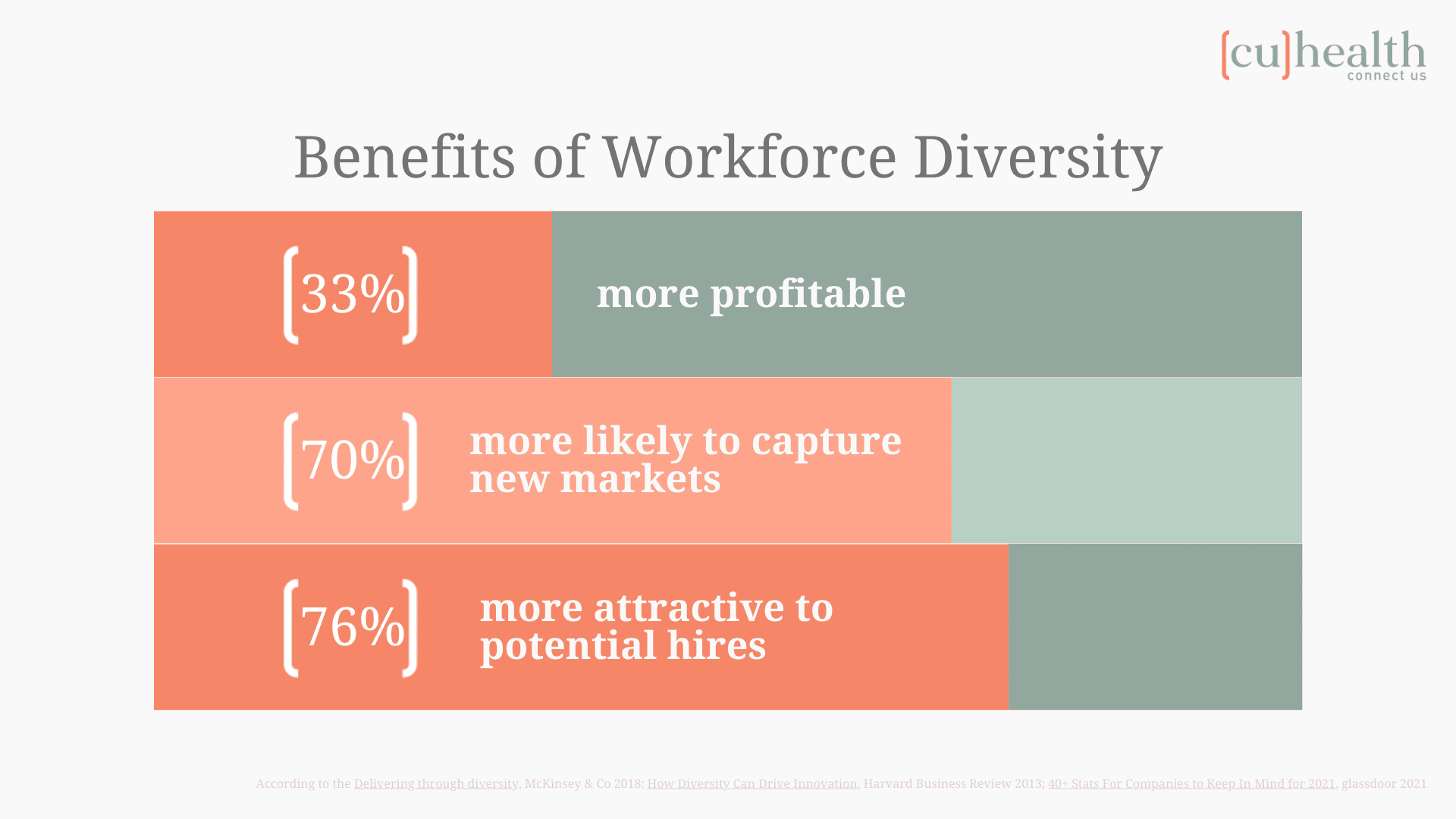Diversity is just good business
The Jobs and Skills Summit earlier this year really honed in on the importance of creating and sustaining a more diverse and inclusive workforce. One of the advantages of the seismic shift in working location and hours over the last few years is that the workplace is opening up to people living with different restrictions on their movement and/or time.
This shift in the rhythm of work and life can feel a bit jarring to organisations familiar and comfortable with the more standard rhythms of office hours, 9-to-5, type environment. But while the changes are something to get used to, there are a lot of upsides to a less rigid concept of the workday.
According to research, companies with a diverse workforce are 33% more profitable than their non-diverse counterparts. They are also 70% more likely to capture new markets.
Diversity has been shown to boost creativity, improve retention and – crucially in a time of tight labour markets – help attract staff. In fact, studies show that 76% of applicants report that a diverse workforce is a key factor when deciding whether to take a new job offer.
Flexible work means that your organisation might be able to take on (and/or keep happy) working parents, people with disabilities, even people from different locations and time zones. Adding these perspectives to your workforce not only improves your own company’s ability to think outside the box and harness diverse perspectives for better decision-making, having a diverse cohort of employees also boosts morale.
Speaking at the Jobs and Skills Summit, Paralympian and disability advocate Dylan Alcott said there was a 61% increase to workplace morale when a person with a disability is hired. “The reason to do this is not just to do the right thing,” he said. “It’s just bloody good business.”
A big part of attracting and keeping a diverse staff is culture. It’s one thing to say you support diversity, but many prospective (and existing) employees need to see that sentiment in action. One simple and effective way to do this is to offer holistic health and wellbeing support. It’s going beyond putting up an RUOK? poster in the bathroom. It’s about being more tailored and personal than instituting a hot yoga meditation hour on a Friday afternoon.
Key, meaningful, wellbeing metrics include psychological wellbeing, workplace wellbeing (such as job satisfaction, positive relationships with colleagues etc), and subjective wellbeing (how people feel their lives are going in general and how their work fits into that construct).
Supporting your employees to perceive these metrics as important to the organisation helps them to feel valued as individuals, which not only improves productivity but also on-the-job attitude and protects against negative outcomes like burnout.
Programs that are flexible and can be tailored to the individual needs of your workers is a good way to meet them where there needs and desires are, rather than expecting a “one-size-fits-all” wellbeing program to deliver all things to all people.
To find out more about flexible, holistic, online support for your employees and how they can help you attract and retain diverse staff, reach out to a CU Health expert today.





